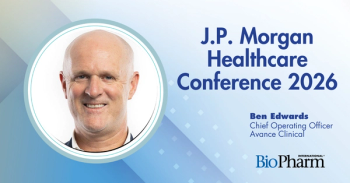
- BioPharm International-06-01-2010
- Volume 23
- Issue 6
Out of Nowhere: Do You Need to Prepare for Highly Improbable Situations?
Being open to unforseen events may avert risk or create opportunities.
The news media during May has been dominated by coverage of the tragic drilling rig explosion and resulting massive oil spill in the Gulf of Mexico. If the event weren't so catastrophic, one would be tempted to smile at the irony that the explosion and spill occurred just weeks after President Obama had thrown his support behind continued offshore oil drilling off the US coast, a move that dismayed his supporters on the left while gaining no new friends on the right. The President's support for offshore drilling was intended to help the US meet its long-term energy needs, but the Gulf disaster could put a halt to all offshore exploration and drilling for decades to come. As a result, the petroleum industry may have ingloriously succeeded in "snatching defeat from the jaws of victory."
Jim Miller
The events in the Gulf of Mexico are an example of what New York University professor Nassim Taleb has called a "black swan" event. Taleb defines black swans as positive or negative events that are highly improbable but have extreme consequences. He argues that over the centuries black swans, and the responses to them, have largely shaped the world in which we live. They are statistical outliers, very unlikely to happen, but with immense ramifications when they do. Taleb argues that while we painstakingly develop explanations for the black swans after they occur, their very improbability causes us to spend too little time thinking about how we might mitigate their consequences—or take advantage of the opportunities they present—if they do occur.
SHAPING THE BIO/PHARMA INDUSTRY
It is certainly the case that black swan events have shaped the evolution of the bio/pharmaceutical industry. Some of the industry's most successful products have been the result of low probability or unexpected events, e.g., Alexander Fleming's accidental discovery of penicillin; the unexpected side effects of sildenafil, a candidate for the treatment of cardiovascular diseases that became Viagra; and the spate of flu epidemics in the last decade, which spurred the explosion of vaccine development.
Just as importantly, black swan events have shaped the regulatory and clinical research environment that governs the bio/pharmaceutical industry. The original Food, Drug and Cosmetics Act was passed as a result of deaths caused by the adulteration of drugs with ethylene glycol in the early twentieth century, and the modern drug research regime, with its focus on safety and efficacy, was an outgrowth of the unexpected side effects of thalidomide in the 1950s and 1960s. The FDA's current initiative for postapproval monitoring of new drugs, Risk Evaluation and Mitigation Strategies, followed the unexpected side effects that appeared with widespread use of Cox-2 inhibitors. Most recently, the heparin scare of two years gave rise to initiatives to ensure the safety and security of inputs across the supply chain.
The global financial crisis has certainly been a black swan event for contract services companies. Providers of research, development and manufacturing services experienced an almost unbroken string of good years during the past decade, as venture capital and public equity poured into early-stage companies and global bio/pharmaceutical companies spent heavily to replace drugs soon to go off patent. The common wisdom was that the bio/pharmaceutical industry was recession-proof, and no one gave much thought to the possibility that the party could end.
The global financial crisis sure changed things, however. Investors and global bio/pharmaceutical companies became more risk-averse, and the flow of funds to support R&D at both large and small bio/pharmaceutical companies slowed considerably. Contract research and manufacturing service providers (CROs and CMOs) that were used to double-digit revenue and profit growth began experiencing double-digit revenue and profit declines. A number of marginal companies have gone out of business and more are likely in coming months.
LOCALIZED EVENTS
Taleb does not limit his discussion of black swans to global events. Rather, improbable events can happen at a more localized level, and the consequences can be more contained, even though severe for those affected.
For instance, consider the implications of warning letters, which have hit a number of contract manufacturers. Warning letters generally have been considered improbable events, especially at CMOs and CROs, which are expected to maintain high levels of compliance and are audited frequently by clients. When they do occur, however, clients risk having the flow of product to patients interrupted and their revenues and profits drastically cut. The CMO or CRO faces the high cost of remediation, the distraction of dealing with the regulators and nervous clients, and the prospect of convincing prospective new clients that it is a reliable company.
OPENING UP TO POSSIBILITIES
Black swans present a classic risk management problem for those who should be addressing them: They are low probability events, so they don't seem to deserve a lot of attention, but their impact can be so catastrophic that it would be foolish not address them. Even if companies run risk-management scenarios or Monte Carlo–type simulations, they may conclude that the probability of such events is so small that they are not worth the effort to address them. More likely, they will fail to anticipate the chain of developments that might lead to a catastrophic outcome, the "one-in-a-million" confluence of events that no one saw coming.
At same time, Taleb notes, black swans events can create unforeseen opportunities, like the side effects of sildenafil. The challenge for decision-makers in the case of improbable positive events is to be open enough to seize an unexpected opportunity when it presents itself, and not ignore it just because it doesn't fit the five-year business plan.
In the end, Taleb says that we must "shed the idea of full predictability," and "be prepared for all relevant eventualities." Improbable does not mean impossible.
Jim Miller is president of PharmSource Information Services, Inc. , Springfield, VA, 703.383.4903,
Articles in this issue
over 15 years ago
BioPharm International, June 2010 Issue (PDF)over 15 years ago
Manufacturers, FDA Seek to Secure Supply Chainsover 15 years ago
The Effect of Thermal Cycling on Clamp-Type Fittingsover 15 years ago
Five Things Every Biotech Company Must Know About Biosimilarsover 15 years ago
The New NormalNewsletter
Stay at the forefront of biopharmaceutical innovation—subscribe to BioPharm International for expert insights on drug development, manufacturing, compliance, and more.




